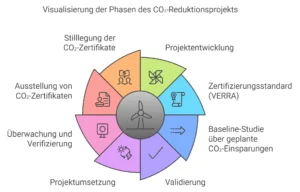When we think about reducing energy consumption in our home, there are many simple but effective measures we can take. First of all, we should be aware of how much energy we actually consume. This means we need to question our devices and their usage.
Often, we leave devices in standby mode or forget to turn off the lights when we leave a room. By becoming aware of these habits and actively changing them, we can not only lower our energy consumption but also reduce our electricity bill. Another option is to choose energy-efficient devices.
When purchasing new devices, we should pay attention to the energy label and choose models that consume less energy. This investment pays off in the long run and helps reduce our ecological footprint. Additionally, we can also consider using renewable energy sources.
If possible, we could install solar panels on our roof or choose a provider that supplies green electricity. These measures not only contribute to reducing our energy consumption but also support the transition to a more sustainable energy supply. Furthermore, we should also consider the insulation of our homes.
Good insulation can help retain heat in winter and preserve coolness in summer, which in turn reduces energy consumption for heating and air conditioning. By combining these different approaches, we can make a significant contribution to reducing energy consumption in our homes.
Key Takeaways
- Reduce your energy consumption by using energy-saving devices and properly insulating your home.
- Avoid plastic packaging by opting for reusable containers and packaging and supporting local markets.
- Switch to sustainable transportation options like biking, public transit, or car-sharing to reduce your CO2 emissions.
- Support environmentally friendly companies by purchasing their products and using their services.
- Reduce your meat consumption by using more plant-based alternatives and considering meat as an occasional treat.
- Support reforestation and conservation projects by participating in tree planting events and donating to organizations focused on nature protection.
- Participate in climate protection demonstrations and sign petitions to put political pressure on more climate protection measures.
- Be mindful in your daily life by using water and electricity sparingly and opting for renewable energy sources where possible.
Avoiding Plastic Packaging in Daily Life
Avoiding plastic packaging is another important step we can take in our daily lives to protect the environment. Plastic is a material that decomposes very slowly and often ends up in our oceans and landscapes, causing significant harm. To avoid plastic packaging, we can choose unpackaged products or bring our own containers when we go shopping.
Many supermarkets now offer bulk goods, and by buying fresh food without packaging, we can not only reduce plastic waste but also make healthier choices. Additionally, we should choose products with minimal or sustainable packaging. Another effective approach is to use reusable alternatives.
Instead of using single-use plastic bags, we can bring cloth bags when shopping. We can also switch to reusable bottles for drinks and reduce the consumption of plastic bottles. Furthermore, we can actively support companies that are committed to sustainable packaging.
By buying products from such companies and supporting them, we send a strong signal to the industry that environmentally friendly practices are in demand. Ultimately, it is up to all of us to make conscious decisions and design our daily lives to avoid plastic packaging as much as possible.
Switching to Sustainable Transport Options
Switching to sustainable transport options is another crucial step towards a more environmentally friendly lifestyle. When we think about how often we use our car, it becomes clear that there are many opportunities to switch to public transportation or cycling. Public transport options like buses and trains are not only more environmentally friendly than cars, but they also provide a cost-effective way to get around.
Sustainable mobility is an important issue that covers many aspects of environmental protection and climate change.
Supporting Environmentally Friendly Companies
| Company | Eco-friendly Measures | Sustainability Rating |
|---|---|---|
| Company A | Use of recycled materials, waste reduction | 4 out of 5 stars |
| Company B | Use of renewable energy, CO2 reduction | 5 out of 5 stars |
| Company C | Sustainable supply chains, environmental protection programs | 3 out of 5 stars |
Supporting environmentally friendly companies is another important aspect of our commitment to a sustainable future. When we purchase products or use services, we have the opportunity to make conscious decisions and support companies that are actively committed to environmental protection. This means we should inform ourselves about the practices of companies – from sourcing raw materials to production and distribution of their products.
By consciously buying from companies that use eco-friendly materials and employ sustainable production methods, we help these companies grow and expand their positive practices. Additionally, we can support local businesses, which often operate in a more environmentally friendly manner than large corporations. Purchasing regional products not only reduces CO2 emissions from transport but also strengthens the local economy.
When we choose eco-friendly companies, we send a strong signal to the market: Sustainability is in demand! We can also actively provide feedback and encourage companies to improve their practices or offer more environmentally friendly alternatives. Ultimately, it is in our hands to make a positive impact on the environment through our purchasing decisions.
Reducing Meat Consumption
Reducing meat consumption is another significant step toward a more sustainable lifestyle. Meat production has considerable environmental impacts – from deforestation for grazing areas to high greenhouse gas emissions during livestock farming. By reducing our meat consumption or even switching to plant-based alternatives, we can significantly reduce our ecological footprint.
There are many delicious plant-based dishes and recipes that are not only healthy but also offer a variety of flavors and textures. By integrating more plant-based foods into our diet, we not only promote our health but also actively contribute to climate protection. Another benefit of reducing meat consumption is the possibility of being more conscious about food.
We can learn to appreciate seasonal and local products and experiment with new cooking techniques. This not only encourages a varied diet but also supports local farmers and reduces food transport. If we decide to adopt a plant-based diet and share our experiences – whether through recipes or restaurant recommendations – we can inspire others and bring about positive change in our community.
Reforestation and Supporting Conservation Projects
Reforestation and supporting conservation projects are essential actions in the fight against climate change and the loss of biodiversity. Trees play a central role in the ecosystem: they absorb CO2 from the atmosphere and produce oxygen. By actively participating in reforestation projects or supporting organizations that protect forests, we make a valuable contribution to preserving our environment.
There are numerous initiatives worldwide where volunteers plant trees together or work to protect endangered habitats. By participating in such projects or supporting them financially, we help preserve the Earth for future generations. Additionally, we can also support local conservation projects by informing ourselves about their work and actively engaging.
This can be through volunteer work in nature reserves or by donating to organizations dedicated to environmental protection. Sharing information about conservation projects on social media can also help raise awareness about these important topics and encourage others to get involved. Ultimately, it is up to all of us to take responsibility for our planet and actively contribute to protecting our natural resources.
Participation in Climate Protection Demonstrations and Petitions
Participating in climate protection demonstrations and signing petitions are important ways for all of us to raise our voices for environmental protection. In recent years, people worldwide have expressed their dissatisfaction with the inaction of governments regarding climate change. By participating in demonstrations or supporting petitions, we show our commitment to a sustainable future and demand political change.
These actions are not only an opportunity for us to express our opinions but also strengthen awareness in society about the urgency of climate protection. Additionally, such events can provide a platform to meet like-minded individuals and build networks. The exchange with others about our concerns can be inspiring and generate new ideas.
When we stand together for a better future and raise our voices, we can make a real difference. It’s important to recognize that every signature counts and every demonstration is a step in the right direction. By taking action and getting involved, we help increase pressure on decision-makers and bring about change.
Mindful Use of Water and Electricity in Daily Life
Being mindful of water and electricity usage in daily life is crucial for a sustainable lifestyle. Often, we take these resources for granted and waste them unconsciously – whether it’s by taking long showers or leaving water running while brushing our teeth. By becoming aware of how much water and electricity we actually consume and where savings are possible, we can significantly reduce our usage.
Small changes, such as installing water-saving showerheads or using energy-saving light bulbs, can have a big impact. Additionally, we should also pay attention to how we use our devices. Turning off lights in unused rooms or disconnecting devices from the power supply can help avoid unnecessary consumption.
Collecting rainwater for garden irrigation is also an excellent way to save water and protect the environment. By integrating these simple measures into our daily lives and encouraging others to do the same, we can collectively make a positive impact on our planet and promote a more sustainable lifestyle.



